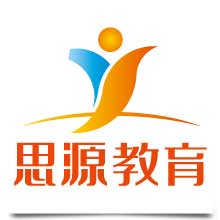日期:2022-07-20 10:10 点击:
1. rise,raise,arise,arouse
“rise” 是不及物动词,过去式为rose,过去分词为risen,其基本词义“上升,上涨”。
The sun rises in the east.
A good idea rose in my mind. “raise” 是及物规则动词,“举起,提高”。
He raised his voice to make himself heard.
The boy can raise the heavy stone.
“arise”,是不及物动词,过去式为arose,过去分词arisen,其语义为“出现,发生” 。
His curiosity arose due to the question his mother asked.
“arouse”是及物动词,过去式和过去分词为aroused,其语义为“唤醒,引起”
arouse somebody from sleep 把某人唤醒
arouse suspicion 引起怀疑
2. lay,lie,lie
“lay”及物动词,“放置,生蛋”,过去式与过去分词为 “laid”
I've laid the book on the self.
The hen lays an egg every day.
“lie”不及物动词“位于,平躺”,过去式为“lay”过去分词 “lain”
He lay on the floor and slept soundly.
Beijing lies in the north of China.
“lie”及物动词“说谎”,它是规则动词。
He lied to his teacher.
3. sit,seat
“sit”不及物动词,过去式与过去分词均为 “sat”。
He sat in the classroom reading newspaper.
“seat”及物动词,“使就坐”“容纳”。
He seats himself here.
He is seated there.
He seats the baby on his knees.
The hall will seat 5000 people.
4. affect,effect
“affect” 及物动词,“对……有影响,感动,触及”
The relations between then will be affected.
“effect” 及物动词, “导致,造成,带来(变化),产生”
The changes in methods effected some improvement in his study.
5. hang (hanged, hanged) / (hung, hung)
当 hang过去式与过去分词为 “hanged”,其含义是“绞死”;而当hang的过去式与过去分词为“hung”时,其含义是“悬挂”。
The man was hanged for murder.
He hung his coat on the hook.
6. borrow,lend
“borrow”借入 “borrow sth. from ...”
“lend”(lent, lent) 借出 “lend sb. sth” 或 “lend sth. to sb.”
7. take,bring,fetch
“take”(took, taken) 及物动词“拿走”
“bring”(brought, brought) 及物动词“带来”
“fetch” 及物动词“去取回来”




上海教育出版社出版,欲购请联系本公众号!
思源教育(原上海交大思源进修学院,简称思源教育)成立于1996年,自建校以来,秉承交大校训,依托名校师资,提供专业的托班辅导、青少年英语辅导、小学辅导、初中辅导、高中辅导、高考高复、三校生高复、艺考生文化课等,学生遍及全市各区,至今已帮助六万多余名学子取得优异成绩,成功考入理想的各级院校!20余年来思源已成为“中考教学研究中心”、“中学个性化学习教育基地”、“快速学习法”实验学校。
